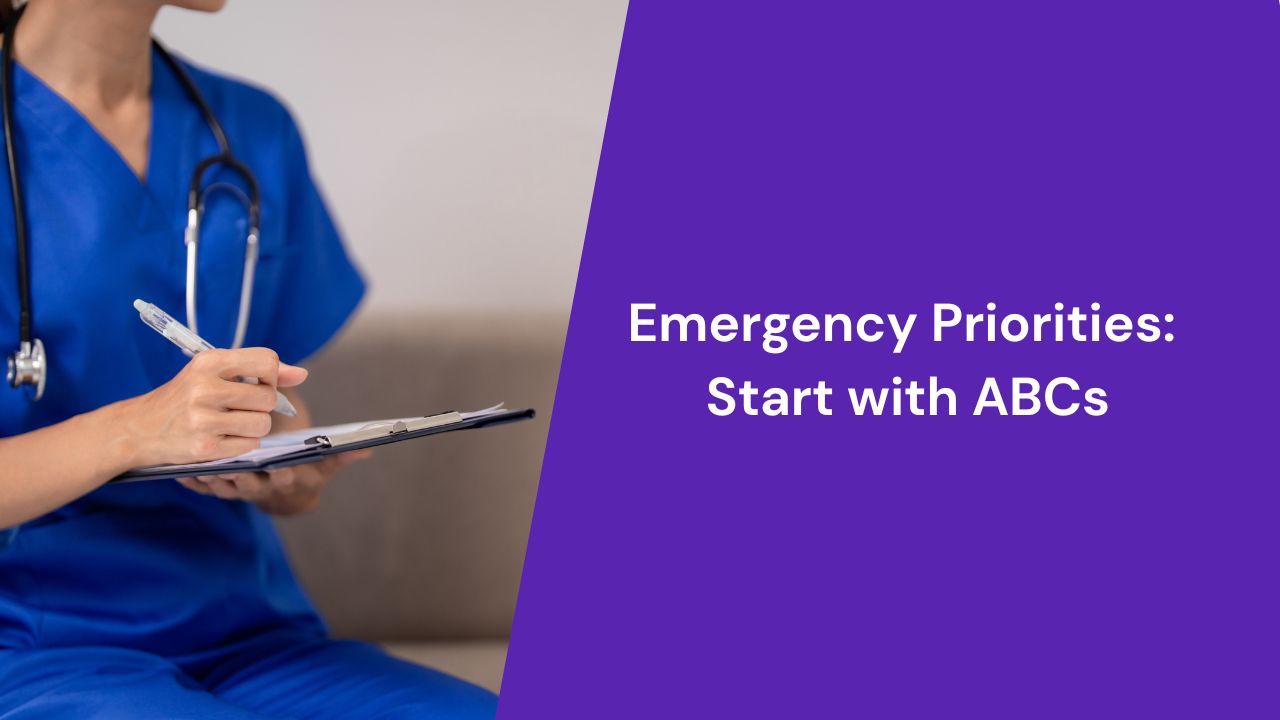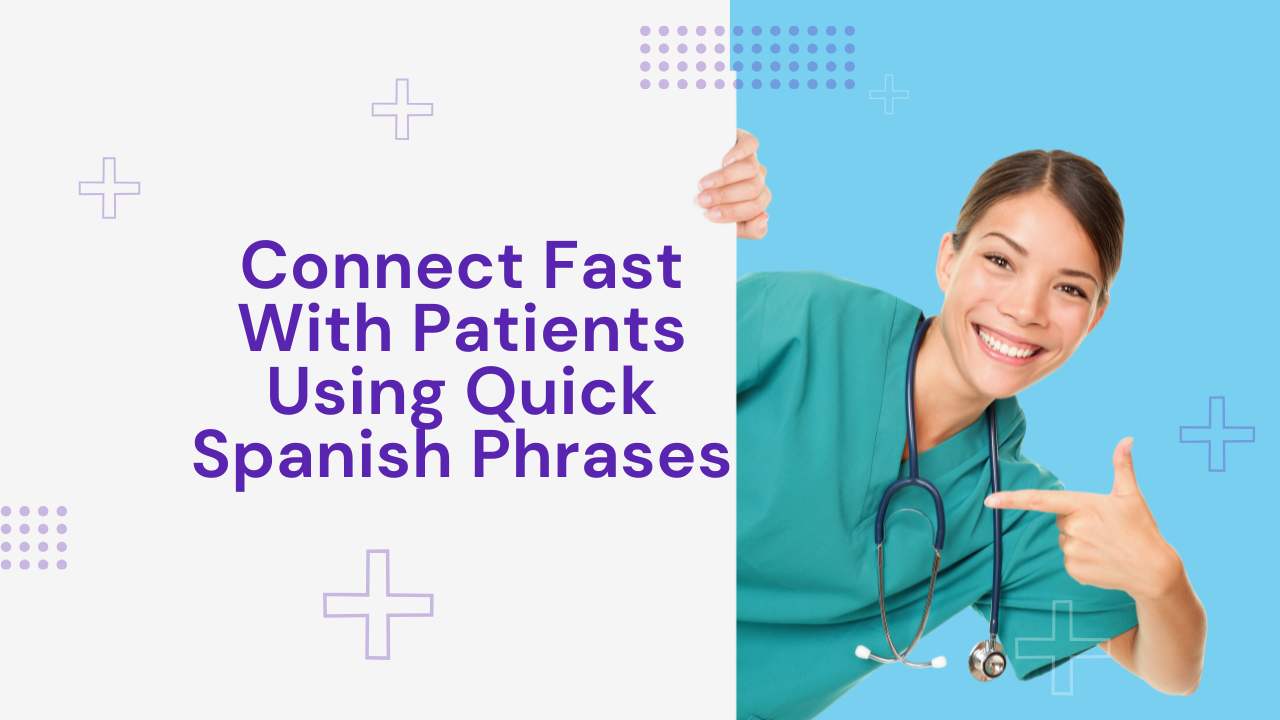When you want to become a nurse, various degrees—and degree timelines—are available to you.
You can start with an associate’s degree in nursing (ADN), which typically takes around two years to complete, or go straight for a bachelor’s of science in nursing (BSN), which typically takes closer to four years. Graduate and doctorate programs are also available if you want to pursue higher education.
These are great options for those who love school and have the time, desire, and lifestyle suited to pursue them. But what about students who need to look at quicker timelines?
That’s where accelerated nursing programs come into play, helping you to get the degree and education you need in a shorter time frame. Let’s take a look at why some students choose accelerated nursing programs and how to know if they’re right for you.
What Is an Accelerated Nursing Program?
Accelerated nursing programs offer fast-tracked programs that can help you get your nursing degree in a reduced time.
Accelerated nursing programs are available for ADNs, BSNs, and master’s of science in nursing (MSN) degrees, all of which are designed to help you complete your degree faster. Some make use of online classes, but all degrees require that clinical hours are completed in person.
Different Types of Accelerated Nursing Programs

There are a few different types of accelerated nursing programs. The most common are accelerated BSN programs, accelerated ADN programs, and bridge programs for graduate degrees.
Let’s look at each one.
Accelerated BSN Nursing Programs
When people refer to accelerated nursing programs, they’re usually talking about an accelerated BSN program. In most accelerated BSN programs, students who already have an associate’s degree or certain prerequisite classes can jump straight into BSN nursing courses.
Accelerated BSN programs will require that you complete the same nursing courses and the same number of clinical hours as a traditional BSN program. The difference is that you’ll use previous credits you’ve already earned through an associate’s or bachelor’s degree, high school advanced placement (AP) classes, or dual enrollment classes to fulfill initial non-nursing requirements.
Because accelerated degrees are designed to get students their BSN degrees quickly, the coursework is full-time and can be intense. Most students complete an accelerated BSN program in two years.
Accelerated ADN Nursing Programs
Accelerated ADN programs aren’t as common as accelerated BSNs, but some schools offer them. They reduce the average time of program completion from two years to around a year or a year and a half.
Like their BSN counterparts, accelerated ADN programs require some prerequisite classes and the same standard nursing coursework and clinical hours as a standard ADN program.
Make sure that the program you’re considering grants you eligibility to take the National Council Licensure Examination for Registered Nurses (NCLEX-RN), which you will need to pass to become a licensed RN.
Bridge Programs for Accelerated MSNs & DNPs
Accelerated MSN degrees work a little differently than the other nursing programs on our list.
Most accelerated nursing programs use already-completed prerequisites to speed up degree completion time so that the student doesn’t need to start from scratch. Furthermore, students are not expected to have any nursing experience.
Bridge programs, however, allow students who already have nursing experience to pursue higher-level degrees at an accelerated pace. The most common example would be an RN-to-MSN program, which allows nurses with career experience and an ADN degree to get their MSN in around two years.
Bridge programs offer incredibly accelerated timelines by leveraging work experience as a nurse. Instead of receiving a BSN (which could take a minimum of two years with an accelerated program) and then completing an MSN (which takes an average of another two), students can complete an RN-to-MSN program in about two years.
These programs may also be available for nurse practitioner (NP) degrees, including a doctorate of nursing practice (DNP). It takes an average of three to six years for RNs to complete an RN-to-DNP bridge program.
The Pros & Cons of Accelerated Nursing Programs
If you’re considering speeding up your schooling timeline through accelerated nursing or bridge programs, it’s always good to weigh the good and the bad. To make this a little easier, we’ve compiled a list of some of the biggest pros and cons you’ll want to consider.
Pro: You Get Your Degree Faster

The reduced time it takes to get your degree is easily the biggest and most obvious advantage of accelerated nursing programs of all kinds.
Some students don’t have four years to complete a BSN degree, especially if they’ve already completed a bachelor's degree in a different field. Others may be eager to jumpstart their careers faster to start earning a living sooner; some might want to get their education out of the way to get a few years of work experience under their belts before starting a family.
Regardless of the motivation, the ability to shave months or years of degree completion time is certainly appealing.
Pro: Fewer Credits May Mean Less Student Loan
In many cases, accelerated nursing programs mean you don’t need to take as many college classes as you would otherwise. This reduction in classes can easily mean a big cutback in the total cost of your education, reducing your potential student loan debt.
Less time in school may also mean that you need to take out a lower student loan to help pay for housing or living expenses, which many students have to pay for while attending classes full-time.
Accelerated programs may not always be the cheapest option, however; many private schools offer accelerated programs that may be more expensive than in-state traditional programs, for example. Nevertheless, an accelerated program may mean less debt than a traditional program at the same school. Make sure you visit a financial aid department to know your options before starting a program.
Pro: You Can Start Your Career Sooner
The sooner you get through your degree program, the faster you can start your career.
Two more years of income-earning potential is significant. It means you’re two years closer to accomplishing individual financial goals like buying a new car or a home. It also means two more years of compound interest if you’re contributing to a retirement account.
Con: The Fast Pace Isn’t for Everyone
We really only have one significant downside to accelerated programs for those who qualify: The coursework may dominate too much of a student’s time all at once or be too intensive for some.
Accelerated ADN and BSN programs are fast-paced by their very nature. Even eliminating prerequisites from the coursework, this intensive schedule may not work for everyone.
BSN programs, in particular, may require you to attend full-time courses as a student. A packed schedule could be difficult for those who need to work to support themselves through school, especially if the classes are only offered during specific hours. There are plenty of hybrid programs, which offer some coursework online, but students must complete all clinical hours in person.
Final Thoughts on Accelerated Nursing Programs
Accelerated nursing programs may not be right for every student out there. However, they can be good options for those who can take on intensive coursework to jumpstart the next level of their careers, whether working staff positions full-time or as PRN nurses.
Considering taking your career in nursing to the next level? Join our community to talk with our nurses!









.jpg)




